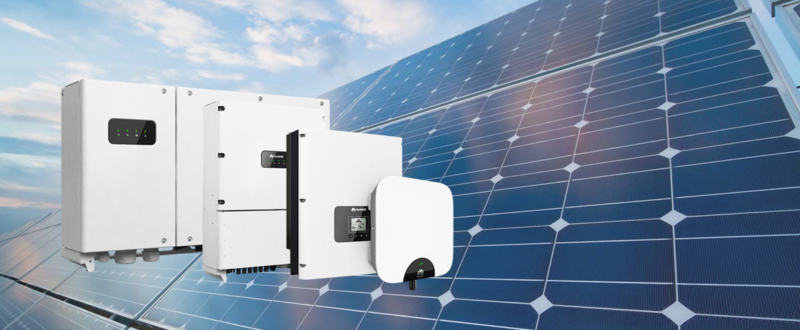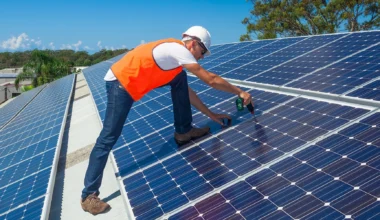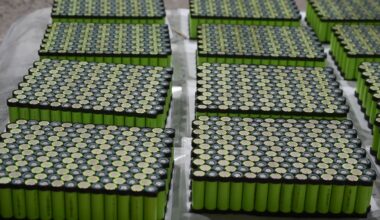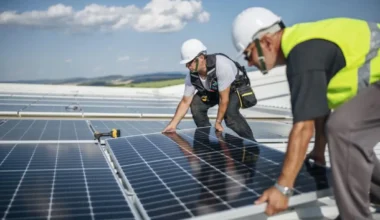Top 5 Reasons High Voltage Hybrid Inverters Outperform Traditional Inverters
Introduction
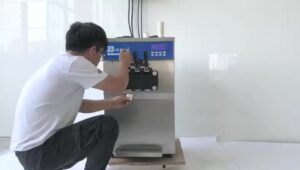
The rapid growth of renewable energy technologies, particularly solar power, has made it essential to choose the right components to maximize efficiency and performance. One of the most important components of a solar system is the inverter, which converts the DC (direct current) electricity generated by solar panels into AC (alternating current) electricity used by home appliances.
In recent years, hybrid inverters have emerged as a revolutionary alternative to traditional inverters, offering enhanced features and benefits. While traditional inverters have served the solar energy market for decades, high voltage hybrid inverters offer several key advantages that make them a better choice for modern solar installations.
This blog post will explore the top 5 reasons why high voltage hybrid inverters outperform traditional inverters, helping you understand the benefits of upgrading to this cutting-edge technology. If you’re considering switching to or installing a solar system, read on to discover how hybrid inverters can improve your system’s efficiency and longevity.
What Are Hybrid Inverters?
A hybrid inverter is a type of inverter that combines the functionalities of both a solar inverter and a battery inverter. It allows solar energy to be used for immediate consumption, stored in a battery for later use, or sent back to the grid. Hybrid inverters are designed to seamlessly integrate with battery storage systems and smart home devices, providing a more flexible and efficient energy management solution compared to traditional inverters.
Quick Comparison: High Voltage vs. Traditional Inverters
-
Traditional Inverters: These inverters only perform the function of converting DC electricity from solar panels to AC electricity. They are not compatible with battery storage systems and do not have the advanced features offered by hybrid inverters. Traditional inverters typically operate at lower voltage levels (e.g., 12V to 48V).
-
High Voltage Hybrid Inverters: These inverters operate at higher voltages (e.g., 300V to 600V) and are capable of integrating with both solar panels and battery storage systems. High voltage hybrid inverters are designed to manage energy more efficiently, especially in systems with larger energy storage needs.
Now that we understand the difference between the two, let’s explore the top 5 reasons why high voltage hybrid inverters outperform traditional inverters.
1. Superior Energy Efficiency
Why It Matters
One of the main reasons high voltage hybrid inverters outperform traditional inverters is their superior energy efficiency. In traditional solar power systems, energy is converted from DC to AC through an inverter, and excess energy may be lost in the process. This becomes particularly problematic as the system grows and more electricity needs to be generated and stored.
High voltage hybrid inverters, however, are specifically designed to minimize energy loss and optimize energy conversion. Their ability to handle higher voltages allows them to operate with greater efficiency, ensuring that more solar energy is captured, converted, and stored.
How It Works
-
Higher Voltage, Lower Losses: By operating at higher voltages, hybrid inverters can reduce the amount of energy lost in the conversion process. This translates to better overall system performance, particularly in larger installations where energy efficiency is critical.
-
Maximized Power Output: High voltage hybrid inverters can manage higher amounts of energy from solar panels and direct more of it into battery storage, rather than sending excess energy to the grid or losing it in inefficient conversion.
Bottom Line
The improved energy efficiency of high voltage hybrid inverters translates to better long-term savings and greater returns on your solar investment. The more energy you can efficiently store and use, the less reliance you will have on the grid, resulting in lower electricity bills.
2. Enhanced Load Management
Why It Matters
Load management refers to how an inverter handles energy demands within a solar-powered system. High voltage hybrid inverters excel in load management because they can store excess energy in batteries and use that stored energy to power appliances when solar generation is insufficient, such as during cloudy days or at night.
In contrast, traditional inverters are limited to their immediate energy conversion capacity and cannot efficiently store or manage energy, making it harder to balance energy consumption with solar generation.
How It Works
-
Advanced Load Distribution: High voltage hybrid inverters come with advanced algorithms that optimize energy usage by balancing solar generation, battery storage, and grid supply. They automatically draw from the battery storage during peak consumption periods to reduce reliance on the grid.
-
Energy Prioritization: With hybrid inverters, you can prioritize certain devices or appliances, ensuring that they are powered first from the stored energy, reducing overall grid dependency.
Bottom Line
By providing enhanced load management, high voltage hybrid inverters help homeowners and businesses make the most of their solar energy systems. This is particularly beneficial for users with fluctuating energy consumption patterns or those who want to ensure a steady energy supply regardless of external conditions.
3. Longer Battery Life Compatibility
Why It Matters
As the cost of battery storage systems continues to decrease, more homeowners and businesses are investing in battery storage to enhance their solar setups. However, many traditional inverters are not optimized to manage the charging and discharging cycles of batteries, which can shorten battery lifespan.
High voltage hybrid inverters, on the other hand, are specifically designed to maximize the longevity of battery storage systems by ensuring the optimal charging cycles and voltage levels for the batteries.
How It Works
-
Optimized Charging: Hybrid inverters can regulate the voltage and current used to charge batteries, ensuring that batteries are charged and discharged at the optimal rate. This reduces stress on the battery and helps to extend its life.
-
Battery Health Monitoring: Many high voltage hybrid inverters come with integrated battery health monitoring systems, which track the performance of the battery and make adjustments as needed to keep it in good condition.
Bottom Line
The ability of high voltage hybrid inverters to enhance battery life is a major selling point. For those looking to invest in solar-plus-storage systems, this feature ensures that your investment in batteries will pay off in the long run, offering both energy independence and savings.
4. Lower Installation & Maintenance Cost
Why It Matters
While high voltage hybrid inverters are generally more expensive upfront compared to traditional inverters, they offer long-term savings in installation and maintenance costs.
How It Works
-
Fewer Components Required: Traditional inverters often require additional equipment, such as a separate battery charger and controller for battery storage. High voltage hybrid inverters integrate these components, reducing the number of parts needed and simplifying the overall system setup.
-
Lower Installation Complexity: With fewer components and simpler integration, the installation of high voltage hybrid inverters is generally less complicated, reducing installation costs.
Bottom Line
The lower installation and maintenance costs of high voltage hybrid inverters make them a more cost-effective solution over the lifetime of your solar system. The simplified system setup and fewer moving parts reduce the likelihood of system failures and maintenance needs.
5. Future-Ready for Smart Systems
Why It Matters
As smart homes and automated systems become more popular, the need for future-ready solar systems that can seamlessly integrate with smart home devices and IoT (Internet of Things) technology is increasing.
High voltage hybrid inverters are designed with smart technology integration in mind, allowing them to communicate with home energy management systems, smart thermostats, and other connected devices.
How It Works
-
Seamless Integration with Smart Devices: High voltage hybrid inverters can connect to home energy management systems (HEMS) to optimize energy usage across devices. For example, they can automatically adjust the operation of smart appliances based on available solar power or battery storage.
-
Energy Optimization: With integration capabilities, these inverters can help manage and optimize energy usage throughout the day, ensuring that appliances are powered efficiently and reducing overall energy waste.
Bottom Line
Being future-ready means high voltage hybrid inverters are well-equipped to work in a smart home environment, offering seamless integration with a variety of home automation systems. As the smart home ecosystem continues to grow, this feature will be critical for long-term compatibility.
Real-Life Use Case: A Solar Installer’s Experience
Let’s take a look at a real-world example. A solar installer recently upgraded a residential home to a high voltage hybrid inverter setup. The homeowner had been using traditional inverters with a basic solar setup but faced issues with battery compatibility and energy efficiency during low-light days.
After switching to a high voltage hybrid inverter, the homeowner noticed:
-
Improved battery efficiency: The battery now charged and discharged more efficiently, extending its life.
-
More stable energy supply: During cloudy days, the home continued to have a reliable power supply, thanks to the enhanced load management.
-
Cost savings: The homeowner saw a reduction in electricity bills due to better energy usage and higher solar self-consumption.
The installer reported lower installation costs, improved customer satisfaction, and less time spent on system maintenance.
Should You Upgrade?
Upgrading to a high voltage hybrid inverter is an investment, but the benefits far outweigh the initial costs. If you are looking for:
-
Superior energy efficiency,
-
Longer battery life,
-
Lower maintenance costs, and
-
A future-proof solar system,
then switching to a hybrid inverter is a smart move. Whether you’re looking to install a new system or upgrade an existing one, high voltage hybrid inverters offer a comprehensive, long-term solution that provides both performance and savings.
Conclusion
In the world of solar power, high voltage hybrid inverters are clearly the future. Their superior energy efficiency, enhanced load management, and ability to integrate with smart home devices make them the go-to choice for anyone looking to maximize their solar investment.
By choosing a high voltage hybrid inverter, you’re not just improving your solar system today—you’re ensuring that it remains compatible with future technologies, while also reducing maintenance costs and increasing the overall lifespan of your batteries.
Make sure to consider these advantages when upgrading or installing a solar system, and you’ll be well on your way to enjoying a more efficient, cost-effective, and sustainable energy solution.
Read Also: Solar Inverters Explained: 10 Guides to Clean Energy Solutions
FAQs
1. What is the difference between a traditional inverter and a hybrid inverter?
A traditional inverter only converts DC power from the solar panels to AC power, whereas a hybrid inverter also allows for the integration of battery storage and can manage energy between the solar panels, the grid, and the battery.
2. Can hybrid inverters work without batteries?
Yes, hybrid inverters can work in a basic solar-only setup, but their full benefits are realized when combined with a battery storage system.
3. Are hybrid inverters more expensive than traditional inverters?
While hybrid inverters can be more expensive upfront, their energy efficiency, future-ready integration, and lower maintenance costs provide long-term savings.
4. Can I integrate a hybrid inverter into a smart home?
Yes, high voltage hybrid inverters are designed to integrate seamlessly with smart home devices and energy management systems, optimizing your home’s overall energy usage.
5. What are the benefits of high voltage hybrid inverters over standard ones?
High voltage hybrid inverters offer better energy efficiency, enhanced battery compatibility, and more advanced load management compared to traditional inverters, making them ideal for modern solar systems.
